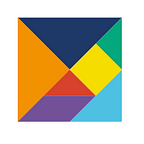DataArt Approach to Account-Based Knowledge Management with the Open edX® Platform
The article was originally published in Open EdX blog.
For much of human history, knowledge was mostly shared orally in stories and folklore. One group taught another, parents taught children, teachers taught pupils, and peers taught peers. Remarkably, centuries after the invention of the printing press, humans still share knowledge orally even when oral knowledge transfer is far from optimal. A case in point is collective corporate knowledge sharing when onboarding a new employee.
Collective Team Knowledge Is a Valuable Corporate Asset
Collective team knowledge is the process- and/or technology-based competence and culture of an organization, consciously possessed and consistently followed by a group of people. This organizational knowledge is a valuable asset that should be managed accordingly. When a new person joins the group, he/she goes through onboarding to receive a “starter pack” of this collective wisdom.
The core challenge in managing collective team knowledge is that it is always not 100% formalized and standardized and thus poorly structured, at times flawed, and, most importantly, subjective and proprietary. Though teams seek optimal ways to collect knowledge in a single repository and keep it up to date, manual, ad-hoc onboarding is prone to flaws and personal bias. Moreover, people in charge of onboarding have varying levels of knowledge.
Account-Based Onboarding at DataArt
DataArt, as a technology vendor in long-term software development projects, inevitably deals with team knowledge management in client accounts. We find that account-specific educational courses are the most effective way to onboard new team members. Using the Open edX platform, we have created a number of courses and specialized training modules based on account-specific onboarding and introduction materials. At DataArt, the Open edX platform is integrated with our project management and time-tracking system, so, when a new member joins an account team, he/she is automatically assigned an account-specific onboarding course.
These courses have several advantages over alternative approaches, including:
- Educational courses are a form of active learning, which has proven most effective.
- The baseline knowledge is formalized and structured rather than personal and subjective. This way, the asset becomes more “tangible.”
- Courses are an optimization tool, as they are reusable and save time that otherwise is spent on repetitive knowledge transfer for every new member. The team does not lose effectiveness because of a “newbie.”
The main disadvantage of account-based onboarding is that the course content must at all times be kept up-to-date.
Where to Start with an Account-Based Course?
Small-scale automation of onboarding with educational courses does not require a huge effort, extensive upfront preparation, or significant financial investment. The people in charge of onboarding should simply transform their regular “intro” materials into reusable ones. The learning content could be then improved iteratively and enriched based on the feedback of every newly on-boarded team member. For instance, a person in charge of onboarding could capture a demo of system functionality with a screen recorder while actually demonstrating the system for a new team member. Recording quality is not as important as usefulness. The video could later be divided into shorter clips, categorized, tagged, annotated, and complemented with links and helpful resources.
At a high level, DataArt’s account-based onboarding courses generally include:
- team code of conduct (communication protocols, daily timetable, tools and lifehacks, vacation policy)
- who is who on the team (colleagues on both DataArt’s and the client’s sides and their areas of responsibility)
- infosec and compliance standards (to the extent they differ from company-wide standards)
- business domain (high-level overview of the client’s industry & IT and the client’s long-term vision of the project)
- project specifics (software requirements and functionality, legacy system overview (if applicable))
- for some accounts, role specifics (tasks, tools, and areas of responsibility depending on one’s role in the project).
Added Value of Account-Based Onboarding Courses
Account-based onboarding courses are an effective tool for integrating new team members into a project and mitigating the effects of turnover, whether the new members join the client’s, DataArt’s, or a subcontractor’s team. As a technology vendor, DataArt has proven that turnover does not have to disrupt daily teamwork. Account-based courses enable easier scaling of the team and provide a better overview of the software system and each contributing team role.
Online, account-based educational courses are a great tool for knowledge management and onboarding of small groups. Courses can be created relatively easily, without large investments, and can be improved iteratively with an in-built Open edX platform toolset.
In DataArt’s experience, it is feasible to create a dedicated, account-based course for a team of up to 20 members. Managing course content and keeping it up to date is a continuous process, but the ultimate value is well worth the effort.
Originally published at Openpen.edx.org and re-published at DataArt.com.
